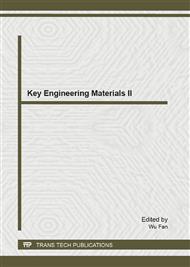p.1219
p.1224
p.1229
p.1238
p.1243
p.1248
p.1252
p.1257
p.1263
Research of Legislation and Practice for Piercing the Corporate Veil under New Companies Act in China
Abstract:
Pierce the corporate veil rules together with the company's independent personality constitutes a complete, rigorous corporate system. Pierce the corporate veil rules as part of a corporate system, and improve its position in the supplement, which is the balance between corporate interests of shareholders and creditors of the company's results. Pierce the corporate veil rules apply to particular legal relationship, it is by denying the company's independent personality behind the company investigated for abuse of corporate personality and limited liability of shareholders independent of the liability of shareholders. Make up the deficiencies inherent in the corporate system to protect the legitimate interests of creditors of the company. Pierce the corporate veil in order to achieve the value of the rules of fairness and justice, our country should be based on the theory from abroad. With China's judicial practice, judicial interpretation and give full play to the role of a typical case, a reasonable allocation of the burden of proof. Prudential rules applicable to pierce the corporate veil and do advance prevention. Try to avoid piercing the corporate veil applies the rules to further improve the new company law in China under the rule of piercing the corporate veil.
Info:
Periodical:
Pages:
1243-1247
Citation:
Online since:
March 2012
Authors:
Keywords:
Price:
Сopyright:
© 2012 Trans Tech Publications Ltd. All Rights Reserved
Share:
Citation:


